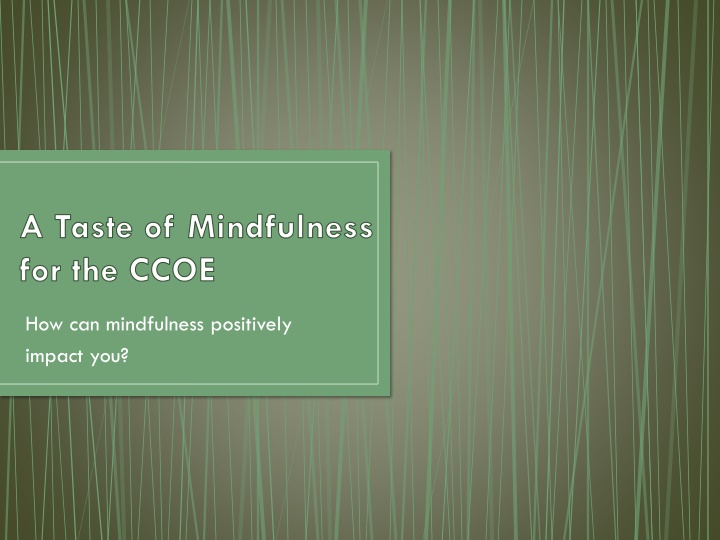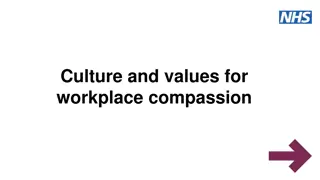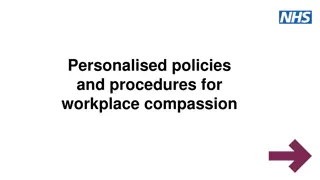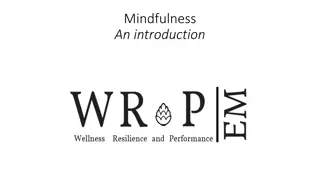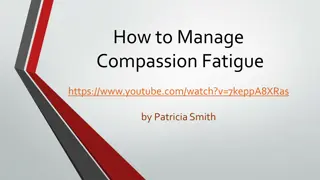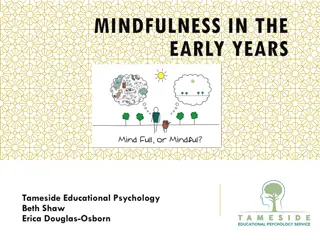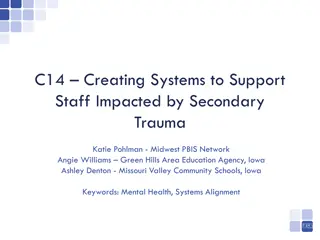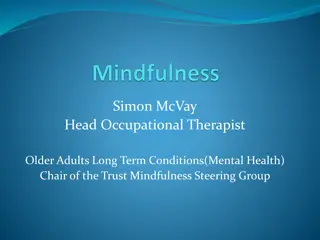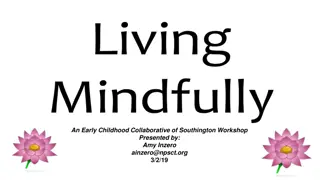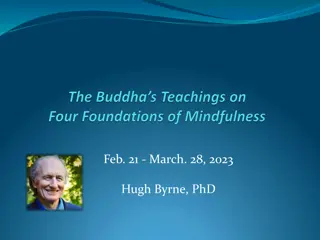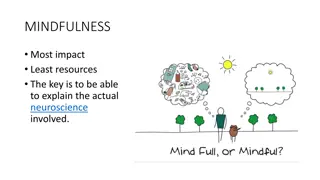Exploring the Positive Impact of Mindfulness and Compassion
Mindfulness and compassion practices can positively impact individuals in various ways, such as enhancing self-compassion, reducing anxiety levels, improving job satisfaction, and fostering interpersonal relationships. Cultivating mindfulness and compassion through techniques like meditation can lead to greater overall well-being and increased resilience. Sources provide insights on how these practices can benefit different aspects of life.
Download Presentation

Please find below an Image/Link to download the presentation.
The content on the website is provided AS IS for your information and personal use only. It may not be sold, licensed, or shared on other websites without obtaining consent from the author.If you encounter any issues during the download, it is possible that the publisher has removed the file from their server.
You are allowed to download the files provided on this website for personal or commercial use, subject to the condition that they are used lawfully. All files are the property of their respective owners.
The content on the website is provided AS IS for your information and personal use only. It may not be sold, licensed, or shared on other websites without obtaining consent from the author.
E N D
Presentation Transcript
A Taste of Mindfulness for the CCOE How can mindfulness positively impact you?
What is mindfulness? Paying attention in a particular way: On purpose, In the present moment, and Non-judgmentally - Jon Kabat-Zinn
Why cultivate compassion? Despite our innate capacity for compassion, our busy lives can lead to its suppression, which may also lead to physical and psychological problems. Compassion helps us to notice suffering and empathize with it. We are thus motivated to act upon our empathy and work to alleviate the suffering we witness. Source: http://ccare.stanford.edu/education/about-compassion-cultivation-training-cct/why-cultivate-compassion/
What are some outcomes we see? Compassion cultivation can improve: Self-compassion Interpersonal conflict Job satisfaction Anxiety levels Mind-wandering toward unpleasant thoughts Feelings of social connection to others Reduction in pain severity & anger (for those in chronic pain) Generosity See Sources slides for all supporting sources
Sources https://centerhealthyminds.org/science/studies/changing-your- brain-and-generosity-through-compassion-meditation-training http://ccare.stanford.edu/education/about-compassion- cultivation-training-cct/why-cultivate-compassion/ Jazaieri, H., Lee, I. A., McGonigal, K., Jinpa, T., Doty, J. R., Gross, J. J., & Goldin, P. (2015). A wandering mind is a less caring mind: Daily experience sampling during compassion meditation training. Journal of Positive Psychology. doi:10.1080/17439760.2015.1025418 Jazaieri, H., McGonigal, K., Lee, I. A., Jinpa, T., Doty, J. R., Gross, J. J., & Goldin, P. R. (2017). Altering the trajectory of affect and affect regulation: The impact of compassion training. Mindfulness. Advance online publication. doi: 10.1007/s12671- 017-0773-3
Sources Ruchelli, G., Chapin, H., Darnall, B., Seppala, E., Doty, J., & Mackey, S. (2014). Compassion meditation training for people living with chronic pain and their significant others: a pilot study and mixed-methods analysis. The Journal of Pain, 15(4), S117. doi:10.1016/j.jpain.2014.01.479 Scarlet, J., Altmeyer, N., Knier, S., & Harpin, R. E. (2017). The effects of Compassion Cultivation Training (CCT) on health-care workers. Clinical Psychologist,21, 116 124. doi:10.1111 /cp.12130 Seppala, E. M., Hutcherson, C. A., Nguyen, D. T. H., Doty, J. R., & Gross, J. J. (2014). Loving-kindness meditation: A tool to improve healthcare provider compassion, resilience, and patient care. Journal of Compassionate Healthcare. doi:10.1186/s40639-014-0005-9
